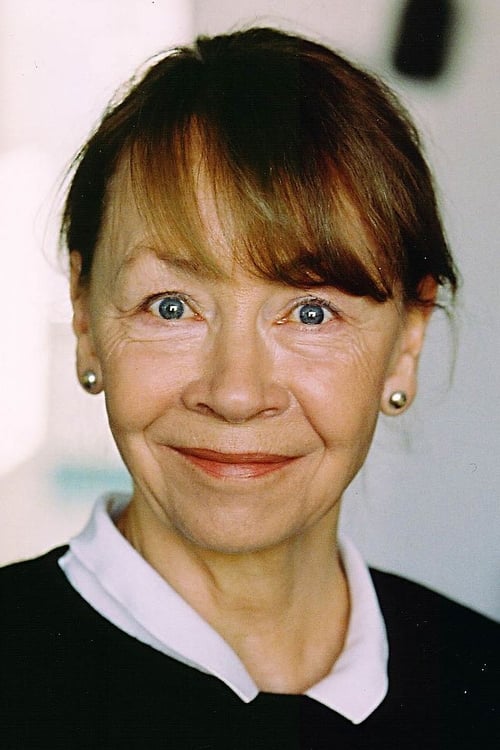Jutta Hoffmann
Birth : 1941-03-03, Halle (Saale)
History
Jutta Hoffmann was born on March 3, 1941 in Halle, Saxony-Anhalt, Germany. She is an actress, known for Bandits (1997), Der Angriff der Gegenwart auf die übrige Zeit (1985) and Karla (1965). She is married to Nicolaus Haenel. They have one child. She was previously married to Herrmann Zschoche.

Julka is 75 years old and seems to have had a long and beautiful life, but a letter left in her house by her first love will change everything. Julka and Julie is a poetic love story between two women who reunite after 59 years of separation.

Irene
From her childhood, Nadia felt responsible for her mentally disturbed and recently homeless mother, Irene. For a while Nadia had cut off all contact with Irene and tried to live her life, until Irene suddenly appears drunk at the wedding of her son, Mickey. Nadia sinks back into this quagmire of love and hate, responsibility, guilt and shame. She gathers her strength to find a home for her mother while at the same time she hides from her partner, Ian, the fact that the drunk woman at her brother's wedding was her mother. But no one can oppress Irene, let alone her daughter.

Ältere Frau
Mother Sophia and daughter Adriana are expecting a child at the same time. When Adriana had an accident in the car, the baby had to be picked up early. It dies without Adriana's knowledge, and Sophie makes a momentous decision ...

Margit
Berlin: Hauptstadt korrupter Populisten, zynischer Journalisten und fieser Gangster. Regisseur und Drehbuchautor Niki Stein hängt sich mit seiner Story weit aus dem Fenster: Im Hals einer Frauenleiche am Husumer Strand steckt ein Papier mit der Handynummer des Starreporters Kress (Ulrich Tukur). Die Kommissarin Nora Jaspers (Anja Kling) fährt in die Spreemetropole, um den Mann zu verhören, doch ein hoher LKA-Beamter (Walter Kreye) nimmt ihr den Fall weg. Gleichzeitig versucht Noras Vater, der Polizeipräsident Kolberg (Hanns Zischler), eine Law-and-Order-Partei zu etablieren…
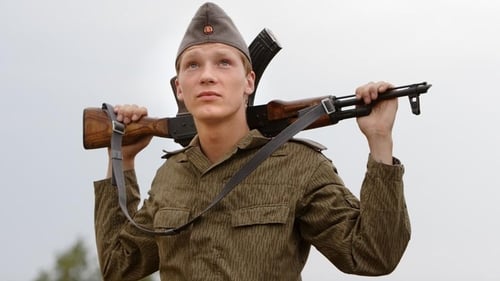
Großmutter
19-year-old NVA soldier, Alex Karow, is sent to the West German-East German border in May 1974, shortly after Willy Brandt's resignation and during the World Cup. The army is dominated by brutal rituals, tolerated or used by the officers. Alex understands that the ideals of balance, democracy and human dignity are propaganda. The question of what happens when the other appears in the sights of the Kalashnikov occupies the soldiers day and night, interrupted almost exclusively by the games of the World Cup with the historic encounter between the GDR and the FRG. Alex draws strength from his love for Christine, a confident tractor driver who lives in the neighbouring village. Christine encourages him not to do what his father expects, but to follow his dream of becoming a photographer. But when her brother sends Alex's photo from the border fortifications to the West, everything gets out of control...
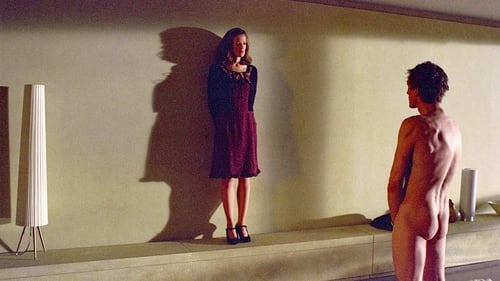
Marie's Mother
Oskar Roehler's drama Der Alte Affe Angst (Angst) is about the dissolution of a couple. Robert (Andre Hennicke) and Marie (Marie Baumer) have little in common other than their sex life. Since Robert is going through a bout with impotency, they are having a very rocky time. Robert learns that his father, whom he is estranged from, has died. This disturbs Robert so much that he visits a prostitute, and is able to engage in sex with her. Marie discovers the infidelity, and the prostitute has a surprise of her own. Angst was screened at the 2003 Berlin Film Festival.
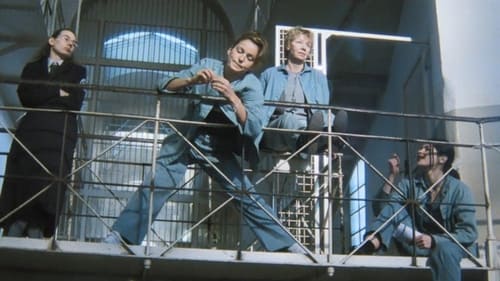
Marie
Four female cons who have formed a band in prison get a chance to play at a police ball outside the walls. They take the chance to escape. Being on the run from the law they even make it to sell their music and become famous outlaws.

Clara
It is autumn. An area of villas in the outkirts of the city. A dilapidated villa in an overgrown garden. The three Schwarz sisters live there. They make life miserable for themselves by constantly harassing each other. They can't live together but they can't get away from each other. Their father has been dead for a long time, but his spirit is omnipresent.
One day a letter arrives and the uneventful lives of the sisters are thrown into confusion.

Gertrud Meinecke
A poignant film essay about 'superfluous people' facing up to a moment of crisis in their lives.

Stella

Hedda Gabler

Gloria Mitchell

Mildred Ruster
In the middle of the 18th Century, the Ruster family immigrates to America. The father, a former farm laborer, leads a hard life as a settler along with his family. One day the nine year-old George, his second-youngest son, is kidnapped by Iroquois. He is taken in by an Indian family in the place of a deceased son and receives the name "Blue Bird." The boy has homesickness and difficulties accustoming to the customs of the Indians.

Lotti Goldner

Ellen
Three couples want to spend a short break together. Some have a traffic accident, the others are prevented professionally. So the designer Robert and the youth helper Ellen are forced to spend the days in a remote farmhouse alone with her young son. The previously suppressed marriage crisis breaks open. Allegations, confessions, charges, self-accusations are in the room. Painfully, they come to the realization that only their own happiness is responsible for their happiness. With the old landlord, each of them finds himself. In the end, Robert and Ellen want to try a new beginning.
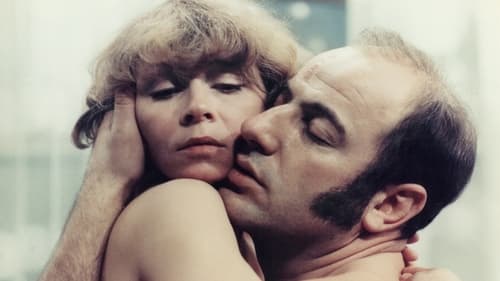
Wanda Brink
One year has passed since Max and Wanda got their divorce. Max has come to the realization that he wants his ex-wife back - no matter what the cost! So he concocts a sneaky plan: he asks Wanda to hide him from the police, who are apparently looking for him. At first, Wanda rejects all his attempts to restart their relationship. But she is soon unable to resist Max's convincing promises and even throws her lover out of the house. But then she discovers Max's lie.
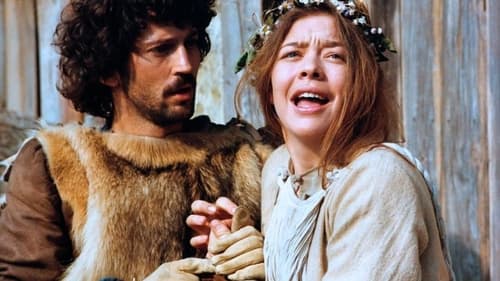
Schnurrenbergerin
Switzerland 1523. The mercenary Hansli Gyr returns with his soldiers from Italy to his home in the Oberland. They have fought for the Pope and now find a religious upheaval in Switzerland.

Adele Schopenhauer
Johann Wolfgang von Goethe (1749-1832) was the author of Werther, the romantic novel that was transformed into a play during Goethe's lifetime and which initiated the whole German romantic movement. The book's story tells of young love and suicide. In this East German film, based on a book by Thomas Mann, Lotte (Lilli Palmer) was the woman who served as the model for the heroine in the novel Werther. She comes to Goethe's hometown for a visit, and her experiences there eerily re-create episodes from the book. Goethe comes across as a pompous old bore, and his friends as pandering sycophants, in this very proper communist party-sponsored, anti-heroic movie.
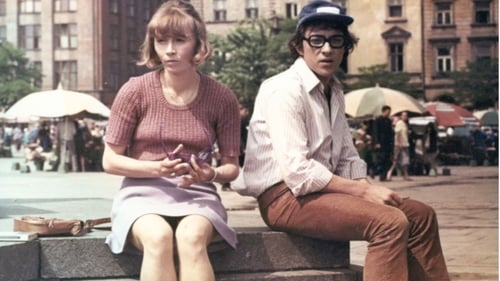
Ric
During their holiday in Kraków, a young worker and a student are asked if their love, despite different views on life, will endure.

Margit
In this East German film, the third one in The Third is Margit's third lover. After her mother's death, Margit has two affairs which don't work out, and one lesbian friendship which she retains. She is looking for a husband, though, and thinks she has spotted a candidate in her fellow factory worker. As she contemplates marrying him, her story is told in a series of flashbacks.
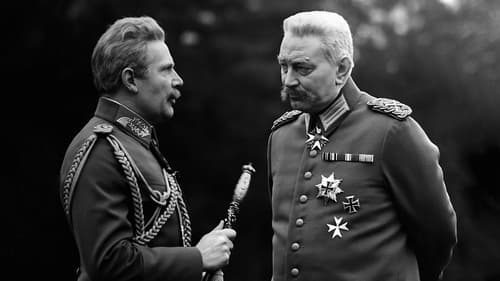
Käthe Schreiner
October 1918: Karl Liebknecht is released from prison and Berlin workers celebrate his release. Although WWI is almost over, the German Kaiserreich in vain sends its last reserves to the slaughter. The working class is in a rebellious mood; the uprising of Kiel’s sailors against war and militarism sets off a call for revolution led by Liebknecht. On November 9, Liebknecht declares the Free Socialist Republic of Germany. But pro-Kaiser military and right wing Social Democrats oppose him.

Rita Kowalski

Gunkel
The story of a young, idealistic doctor and his on-the-job training as a rookie surgeon. Dr. Heiner Sommer moves to a small town in the GDR where he will complete his training under the senior physician, also named Dr. Sommer.

Leonore Wahl

Johanna
Long-haul driver Hannes (Manfred Krug) picks up a young hitchhiker, Herb (Jaecki Schwarz), who had a falling-out with his parents after dropping out of college and now travels around doing odd jobs. After a series of adventures, they are joined by Johanna (Jutta Hoffmann) and her child, who missed their bus and need a ride to Berlin. Johanna has left her husband so that he can reflect on their broken relationship and both men gradually begin to fall in love with her.
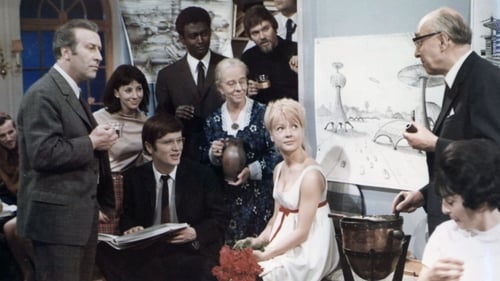
Katja Sommer
The communist and resistance fighter Lorenz Reger, who after the war put all his efforts in the creation of a socialist German state, learns that he has only a short time left to live. Nevertheless, he wants to take on one last difficult new task: He wants to restructure a large firm which has run deep into the red numbers. In a short amount of time, Reger manages to establish mutual trust between the employees and the new management. Furthermore, he motivates the employees with his personal interest for their concerns.

Adam receives a flashlight with special powers: every liar it shines on flies into the air. Production was cancelled in 1965/66 due to the film's political content. Only in 1989/90 could the director reconstruct the film, where missing sounds and images are replaced with script inserts.

Karla
An idealistic teacher is shocked to discover her pupils are already cynical and opportunistic. Her colleague soon grows resentful when she uses new and challenging techniques to help her students overcome obstacles.

Käthe Schreiner
This is part one of a two-part biopic about Karl Liebknecht. In 1914, Germany is arming itself for war. Karl Liebknecht, left-wing revolutionary Social Democrat, workers’ leader and a virulent antimilitarist, is one among 110 SPD members of Parliament who vote against approving war loans. From then on, he is considered un-German and a traitor to the fatherland, and his own party’s leadership turns against him. Despite threats, Liebknecht speaks up against the war and writes the manifesto “The Main Enemy Is at Home.” Even when he is arrested and charged with treason, he does not surrender.

Nelly
The Ruhr area in November of 1918. 13-year old Achim Wolters and his friends get their hands on some potatoes on the market. They want to surprise Achim′s father, who works on a mine sweeper boat, with a decent meal. But Achim′s father does not show up – an informer at the train station has betrayed him for his left-wing beliefs and has turned him over to the police. The priest tells Achim the sad news and advises him to pray for the release of his father. But when carpenter Stelzebein stresses that everybody has to take actions for himself, the devout boy at first does not believe in Stelzebein′s words. But then Achim witnesses in the prison how brutally the imperial police treat his father and the other inmates. Together with his loyal friends, Achim takes Stelzebein′s side. When the revolution starts, they stand together on the barricades.

Uschi
High-school senior Peter considers the adults around him to be hypocritical, self-congratulatory, and immersed in the past. He gets suspended for writing an essay that his teachers consider to be a challenge to the state. Just Don't Think I'll Cry became one of twelve films and film projects-almost an entire year's production-that were banned in 1965-1966 due to their alleged anti-socialist aspects. Although scenes and dialogs were altered and the end was reshot twice, officials condemned this title as "particularly harmful." In 1989, cinematographer Ost restored the original version, and this and most of the other banned films were finally screened in January 1990. Belatedly, they were acclaimed as masterpieces of critical realism.

Penny Berger
GDR border guard Gunter Rist is a young man from humble homes. During a swimming competition he meets Penny, a professor’s daughter from a good family, and they fall in love. However, their different social backgrounds get in the way of their happiness: Penny’s friends make it obvious that they are not willing to accept Gunter in their group. Although Penny takes Gunter’s side, she doubts if love can overcome all obstacles. In this state, she falls for the advances of her ex-boyfriend Bob and joins him on vacation. In the meantime, Gunter has an accident and is hospitalized. In the hospital, he meets the nurse Li who seems to be perfect for him.

Toni Halbe - German student
Czech friends help refugees from Nazi Germany escape in 1939.

Film by Werner W. Wallroth.
